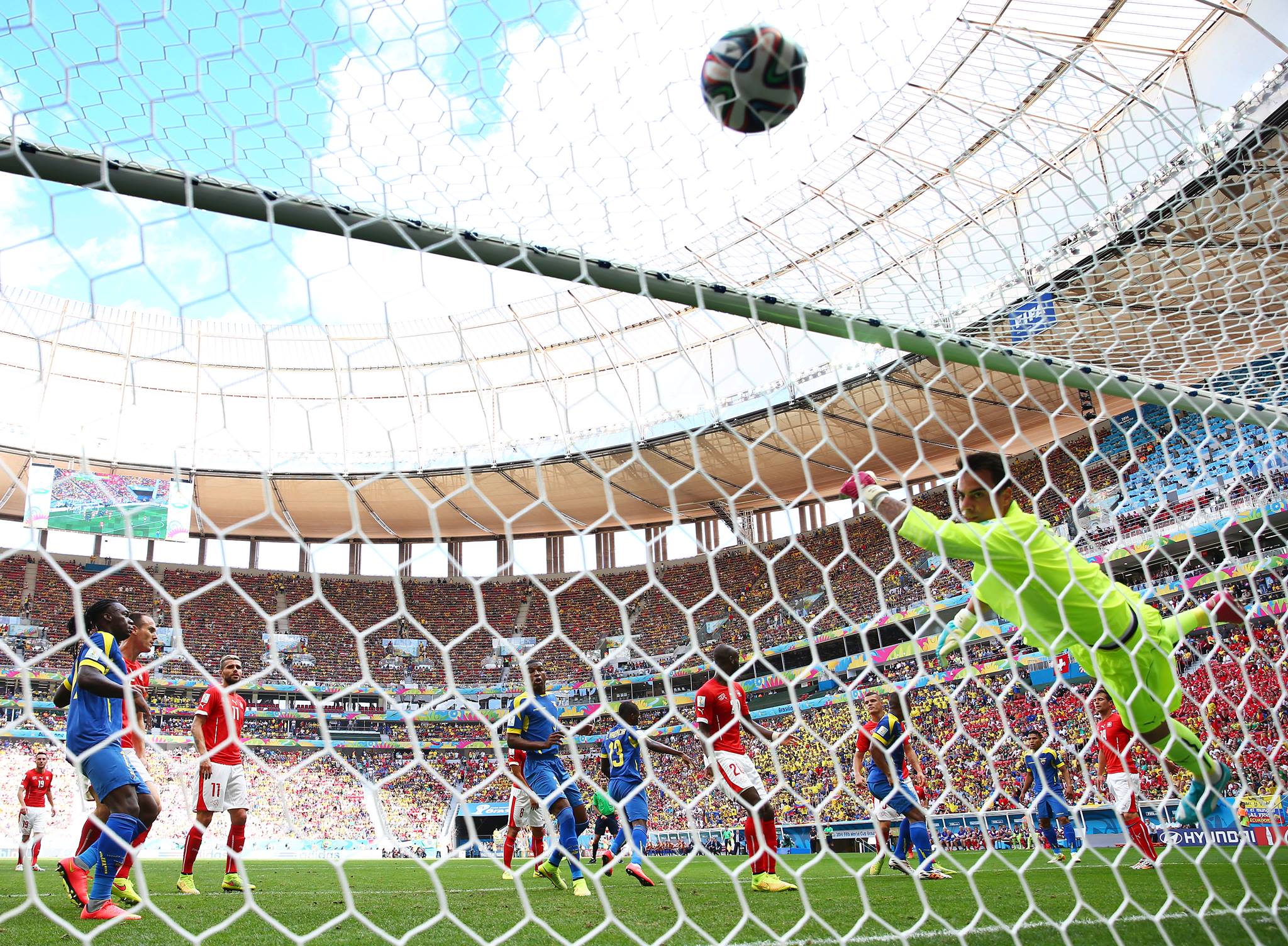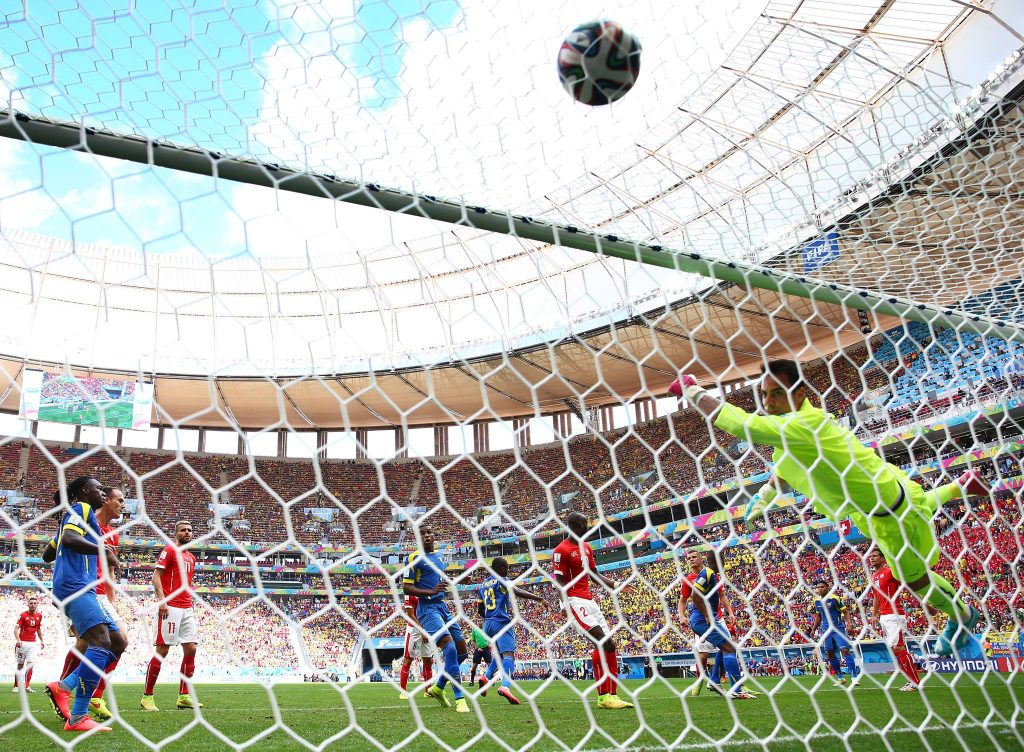 Five days into the World cup, we sat down with the Atlantic Council’s Adrienne Arsht Center Director Peter Schechter and Deputy Director Jason Marczak to get their predicitons on the 2014 World Cup and what it will mean looking ahead. Here is what they had to say.
Five days into the World cup, we sat down with the Atlantic Council’s Adrienne Arsht Center Director Peter Schechter and Deputy Director Jason Marczak to get their predicitons on the 2014 World Cup and what it will mean looking ahead. Here is what they had to say.
Q: We are five days into the 2014 World Cup and things seem to be running smoothly. Were the headlines into the lead up to the game alleging the Brazil was ill prepared to be host exaggerated?
Jason Marczak (JM): So far Brazil has silenced critics who feared the nation would not be ready to host the World Cup. No major logistical challenges have been reported by the teams or the fans. Despite protests and labor strikes, as well as some airport slowdowns, Brazil has managed to take the international scene with very few hiccups.
Q: Have there been protests throughout the country?
Peter Schechter (PS): The legacy of the cup won’t be the shiny stadiums but rather the way Brazilian civil society has made its voice heard over the past months. As the tournament has gotten underway, a few protests continued across the country. Some days have even been protest free, but in Sao Paulo on opening day, police confronted protestors with tear gas and smoke bombs. Still, I foresee fewer protests as each day of the Cup goes by. After the tournament ends, all bets are off, though – the protests could well come back.
Q: Should we expect to see more demonstrations throughout the remainder of the tournament?
JM: Protestors reportedly have demonstrations planned throughout the duration of the World Cup. Many Brazilians remain vocal about the government’s decision to spend billions of dollars on World Cup preparations rather than on issues like education . Expect a resurgence of protests and repercussions from angry Brazilians starting in August when the presidential campaign officially starts.
Q: Recently FIFA’s model has come into question. Do you think that after watching Brazil’s headaches, other countries are hesitant to serve as hosts?
PS: Soccer’s international governing body entered a public cultural clash with Brazil, especially as it imposed unpopular, rigorous regulations. Besides the bitter taste preparations left behind, FIFA is taking 100% of all profits from the tournament. Government officials worked hard to get discounted tickets for the underserved and indigenous communities. There have also been other cultural snafus like street vendors barred from selling “acaraje” – an iconic black-eyed pea fritter snack – anywhere near World Cup venues. FIFA also required the sale of alcohol, which is prohibited in stadiums under Brazilian law, in an effort to increase their profits.
Q: Do you think the pessimism on the World Cup experience will change if Brazil wins the tournament?
JM: Almost three-fourths of Brazilians interviewed in April by the Pew Research Center said they were dissatisfied with the direction their country was headed; up from 55% just weeks before the demonstrations in June 2013. Only 34% said they believed the World Cup was a good thing for the nation because it would create jobs. Clearly all Brazilians will rejoice if their team wins; but this level of dissatisfaction can’t be appeased—even by a World Cup win. And, attitudes could even worsen if the national team doesn’t even make it to the finals! In this election year, President Dilma Rousseff will need to work hard to change public perception and prove that the tournament brought tangible benefits to everyday citizens.
Q: Looking ahead to the 2016 Olympics, what lessons should Rio take away from the World Cup?
PS:The most important lesson is that Brazil’s civil society has woken up and is following its government with a watchful eye. Our report released earlier this month, Will Brazil Get What it Expects from the World Cup?, written by Adrienne Arsht Latin America Center’s Ricardo Sennes, showed how the massive strengthening of Brazil’s democracy will ultimately be the World Cup’s most significant legacy for the nation. But more importantly, the World Cup has already changed the country. The rising middle class engendered over the past fifteen years now demands greater transparency and planning in order to offer support.
